Social Children
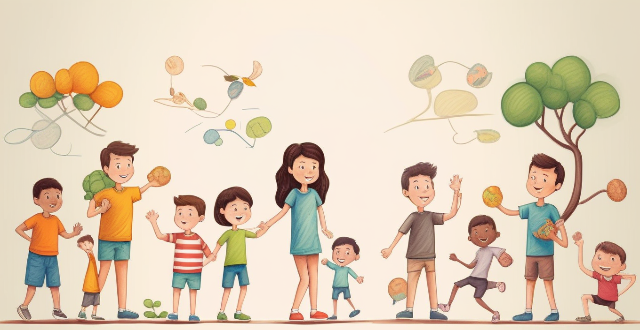
How does exercise influence social skills in children ?
Exercise plays a crucial role in shaping children's social skills by enhancing communication, empathy, emotional intelligence, resilience, problem-solving abilities, healthy risk-taking, and leadership skills. Physical activity helps children build self-confidence, promotes teamwork, develops empathy, enhances emotional intelligence, increases resilience, enhances problem-solving abilities, encourages healthy risk-taking, and fosters leadership skills. These skills are essential for establishing positive relationships with peers and contributing to their communities. Therefore, it is imperative to encourage children to engage in regular exercise to support their overall development and success in life.

How can parents monitor their children's social media use effectively ?
Social media has become an integral part of children's lives, posing risks like cyberbullying and inappropriate content exposure. Effective monitoring by parents is crucial for ensuring their safety. Strategies include establishing open communication, educating children about online safety, using parental control tools, setting boundaries and limits, encouraging offline activities, and staying involved and updated. These measures can foster trust and understanding while promoting safe and responsible social media use among children.

How can parents promote healthy developmental milestones in their children ?
This article provides tips for parents on how to promote healthy developmental milestones in their children, including providing a stimulating environment, encouraging social interaction and physical activity, teaching self-care skills, and fostering independence.
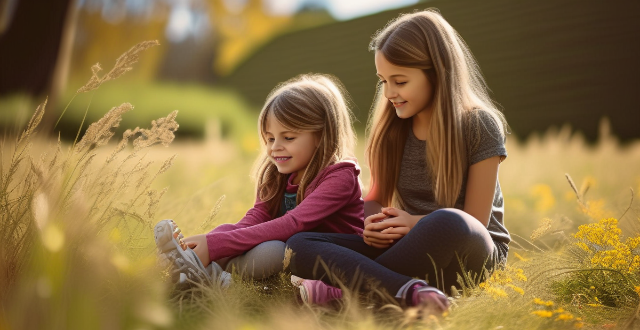
How does sports participation influence self-esteem in children ?
Sports participation has a positive impact on children's self-esteem by increasing physical fitness, developing skills and mastery, promoting social interaction and teamwork, and encouraging goal setting and achievement.
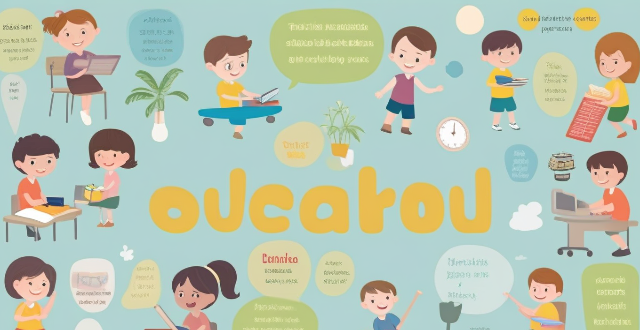
How does preschool education prepare children for kindergarten and beyond ?
Preschool education is crucial in preparing children for kindergarten and beyond. It helps them develop essential skills such as socialization, language development, cognitive development, emotional development, fine motor skills, and gross motor skills. These skills are crucial for success in kindergarten and beyond, where children will be expected to work and play with others, read, write, and communicate effectively, navigate complex social situations, form healthy relationships, and participate in physical activities. By attending preschool, children gain a strong foundation for future learning and success in all areas of life.
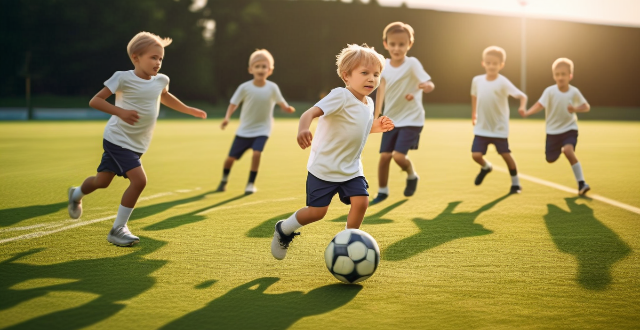
What are the benefits of participating in team sports for children ?
Participating in team sports for children offers benefits including improved physical health, psychological well-being, social skills development, life skills acquisition, and educational advantages. These activities enhance cardiovascular health, self-esteem, teamwork, discipline, and academic performance. Overall, team sports provide a comprehensive developmental experience that prepares children for success in various life aspects.

How can children become advocates for climate change mitigation ?
Children can play a pivotal role in advocating for climate change mitigation. They can start by understanding the basics of climate change through educational programs and applying what they learn in their actions such as reducing waste, reusing items, recycling, and planting trees. Community engagement activities like clean-up drives and promoting sustainable practices also help in raising awareness. Children can use social media responsibly to spread information about climate action and express their views through artwork or letters to decision-makers. They can also influence decisions by meeting local leaders or participating in youth councils. Collaboration with peers and NGOs helps in achieving larger impacts while global engagement makes them feel part of a larger movement. Personal development activities like building public speaking skills and learning about sustainability empower them further.

In what ways do sports help with emotional regulation in children ?
Engaging in sports can significantly aid children in developing emotional regulation skills by promoting stress reduction, enhancing self-esteem, developing resilience, encouraging teamwork and social interaction, teaching discipline and self-control, providing an outlet for energy, and promoting mindfulness.

What actions should parents take to protect their children from climate change ?
Parents should educate themselves and their children on climate change, adopt sustainable living practices, support clean energy, conserve natural habitats, make healthy lifestyle choices, get involved in community initiatives, and prepare homes and communities for extreme weather events to protect their children from the impacts of climate change.

What are the social consequences of natural disasters caused by climate change ?
Natural disasters, intensified by climate change, have extensive social repercussions affecting health, economy, social order, education, and the environment. Immediate impacts include physical harm and mental distress, while long-term effects range from economic setbacks to environmental degradation. Addressing these consequences necessitates a multifaceted strategy encompassing emergency measures, recovery efforts, and sustainable development practices to foster community resilience.

It explains why children are not interested in literacy and how to correctly guide children to literacy

What types of sports are best for promoting motor skills in young children ?
This article explores the importance of motor skills in children's development and highlights four sports—soccer, gymnastics, swimming, and dance—that effectively promote these skills. Each sport offers unique benefits, including improved gross and fine motor skills, coordination, balance, strength, flexibility, and emotional development. Engaging young children in these activities can significantly contribute to their overall growth and well-being.
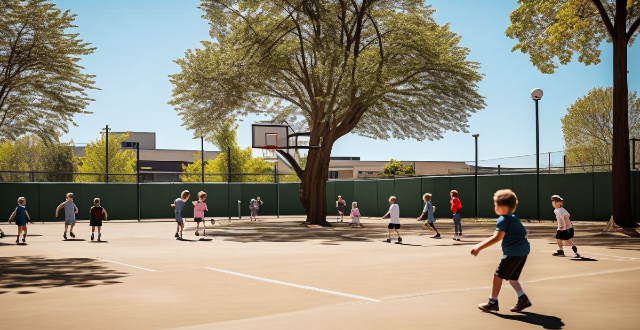
Are there specific sports that improve academic performance in children ?
The article discusses the potential benefits of different types of sports on academic performance in children. It highlights team sports like basketball, soccer, and volleyball for their ability to teach social skills, time management, and discipline. Individual sports such as swimming, tennis, and gymnastics are noted for promoting self-discipline, goal setting, and mental toughness. Outdoor sports like hiking, cycling, and rock climbing are mentioned for providing physical activity, stress relief, and exploration opportunities. The conclusion emphasizes the importance of considering individual differences among children when encouraging sports participation for academic improvement.
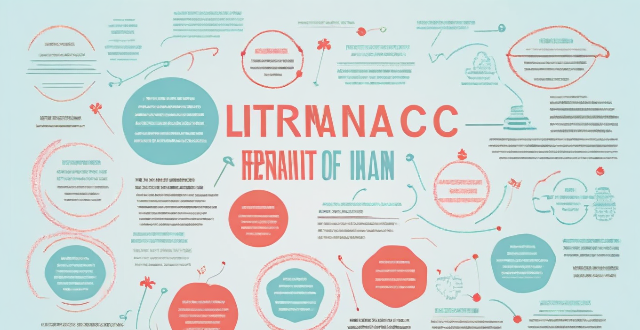
What is the relationship between physical literacy and child development ?
Physical literacy is crucial for child development, enhancing cognitive, social, emotional, and physical dimensions of learning. It improves memory, attention, problem-solving skills, communication, cooperation, empathy, self-esteem, resilience, muscle strength, cardiovascular health, and reduces the risk of chronic diseases. Incorporating regular physical activity into children's daily routines promotes their overall growth and well-being.

How can parents effectively teach their children about safety ?
Teaching children about safety is crucial for their well-being. Parents can effectively teach their children about safety by establishing clear rules, educating them about potential dangers, practicing safety drills, encouraging open communication, and modeling safe behavior. By doing so, children will develop awareness and the ability to protect themselves from potential dangers.
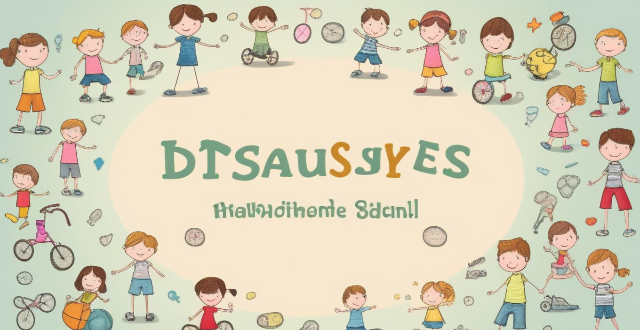
What role do sports play in character building for children ?
The article discusses the various ways in which sports contribute to the overall personality development of children. Sports ensure physical health and well-being, teach valuable life skills such as teamwork, leadership, communication, and goal setting, impact emotional development by boosting self-esteem, teaching resilience, and handling pressure, provide opportunities for socialization, and play a crucial role in moral development by instilling values such as integrity, respect, and responsibility. The author concludes that sports are not just about physical fitness but are powerful tools for character building in children.
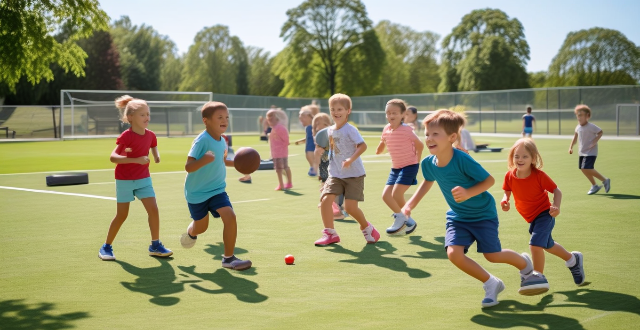
What are the potential risks associated with children specializing in one sport too early ?
Specializing in a single sport at an early age can have both advantages and disadvantages for children. While it may lead to improved skill development and potential for higher-level competition, there are also several potential risks associated with this approach. These include physical risks such as overuse injuries, burnout, and lack of cross-training benefits; psychological risks like pressure and stress, narrowed social experiences, and fear of failure; developmental risks including delayed skill development, loss of childhood, and reduced adaptability; social risks such as isolation, peer pressure, and limited life skills; and academic risks such as time management challenges and prioritization issues. To mitigate these risks, experts often recommend encouraging diverse participation in sports until late adolescence, ensuring a balanced approach between sports, school, and leisure time, providing access to mental health resources for athletes dealing with stress and pressure, and involving parents in a supportive but not pushy way.

How do I provide for minor children in my estate plan ?
When it comes to estate planning, one of the most important considerations is how to provide for your minor children. Here are some steps you can take to ensure that your children are taken care of financially and emotionally after you're gone: Create a will or trust, name a guardian, establish a trust fund, consider life insurance, and make sure your beneficiaries are up-to-date.
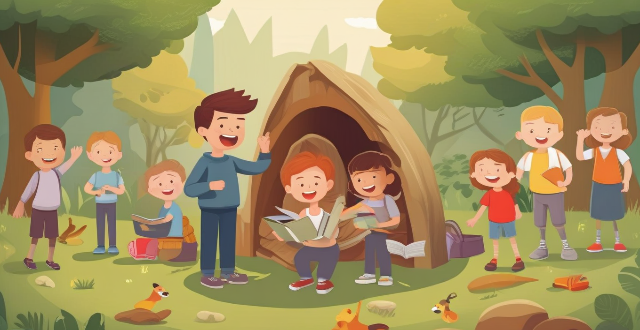
How can children be encouraged to speak up if they feel unsafe ?
The article emphasizes the importance of creating a safe and supportive environment for children to express themselves without fear of judgment or criticism. It suggests educating children about personal safety, role-playing different scenarios, and discussing potential consequences of not speaking up if they feel unsafe. The article also recommends teaching children who to trust, encouraging them to use their voice, and providing options for seeking help. Overall, it highlights the significance of empowering children to take action and advocate for their own safety.

How can parents implement successful home teaching strategies for their children ?
This article discusses successful home teaching strategies that parents can implement for their children. The key strategies include creating a conducive learning environment, setting clear goals and expectations, encouraging active learning, using positive reinforcement, fostering open communication, and modeling good study habits. These strategies aim to support children's academic growth and help them develop essential life skills.
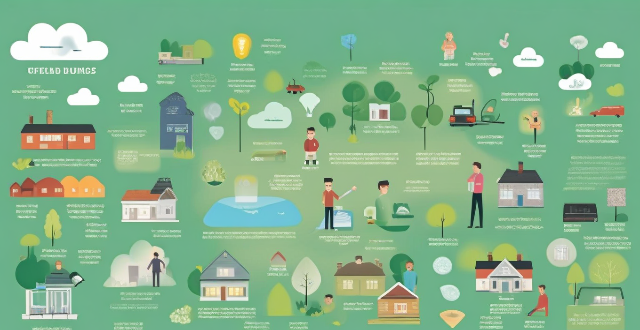
What are the social implications of environmental degradation ?
The article discusses the social implications of environmental degradation, including health impacts such as air pollution and water pollution, economic impacts such as loss of biodiversity and job losses, social impacts such as displacement and cultural loss, and political impacts such as conflicts and refugees. It emphasizes the need for collective action to address these challenges and protect the natural environment for future generations.

What role do children play in combating climate change ?
The article emphasizes the pivotal role children can play in combating climate change. They can contribute through education and awareness, innovation and creativity, advocacy and action, and by making sustainable lifestyle changes. By empowering children to understand and act on climate issues, we can ensure a more sustainable future for all.
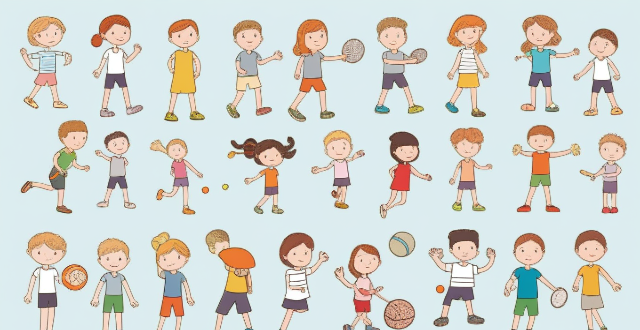
How can schools and communities create inclusive sports programs for children with disabilities ?
Inclusive sports programs are important for children with disabilities. To create such programs, schools and communities should assess community needs, develop policies and procedures, train coaches and staff, modify facilities and equipment, offer modified sports programs, promote inclusion and participation, and evaluate and improve continuously. This ensures equal opportunities for children with disabilities to engage in physical activities and personal growth while fostering a sense of belonging and inclusion.

What are the long-term effects of climate change on children ?
Climate change has far-reaching effects on children's health, including physical, mental, and emotional impacts. Poor air quality, extreme weather events, and food insecurity can harm children's physical health. Trauma and stress from climate-related disasters, as well as fear and anxiety about the future, can affect their mental health. Loss of home and community, along with intergenerational trauma, can impact their emotional health. Addressing these challenges requires a comprehensive approach to ensure a healthier future for all children.